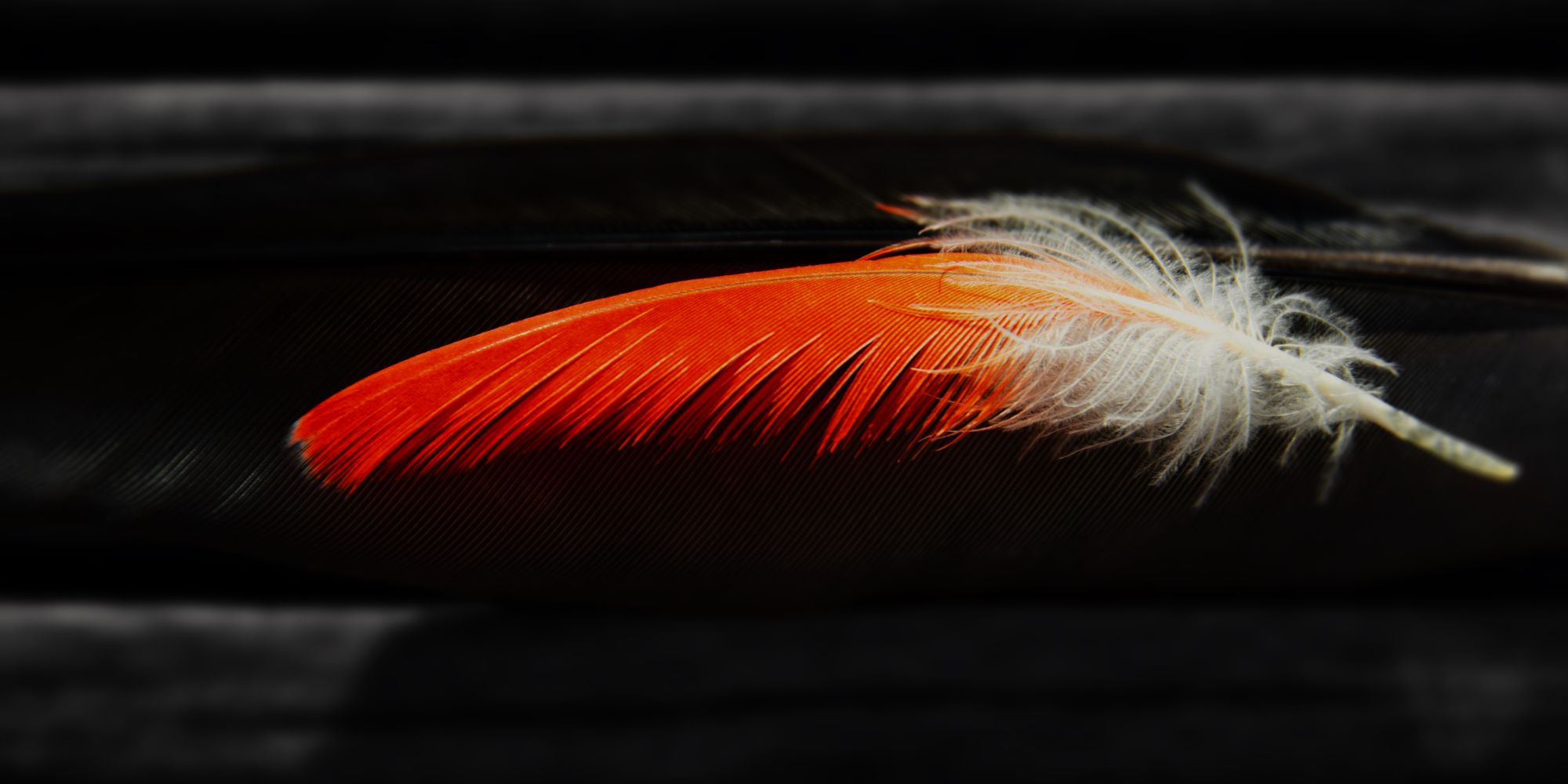
Running Commentary 10/18/2021
Hello,
CraneFest 2021 was a big success. It coincided with an October heatwave, which meant that, unlike last time, I wasn't freezing as dusk fell and the cranes congregated. Also seen: two bald eagles, several bluebirds, several flying ducks and geese, two yellow-rumped warblers, a cardinal, and a red-bellied woodpecker.

Also, in case you missed it, my full review of Black Widow was published this past Wednesday.
Anyway...
Watching...
Star Wars: Visions
This week I'm giving my thoughts on Kinema Citrus's "The Village Bride"

- This is the best short so far.
- The first few scenes didn't seem especially Star Wars-y, They were good, but it felt like it was only being as connected to Star Wars as it had to be to get into Visions. The finale was less like that.
- The music in this was a highlight. Kevin Pinken's score was...not entirely Star Wars-like, but then neither was the short.
- The low point was in the animation, which was flat and cheap-looking, devolving into a literal slideshow in the final scene. The fact that this short was not largely fight scenes meant that the animation worked to tell the story, which was the best told among the first four Visions entries, but the animation was the worst so far.
- Add Karen Fukuhara to the List
BattleBots
I have not actually been watching BattleBots, since the 2021 season won't air until later this year. What I have been doing is reviewing the 2021 roster that's been released.
https://battlebots.com/2021-season-robots/
A few familiar faces that were missed last year are back: Cobalt is back, though Sam Smith and Team Carbide were still unable to travel from England; John Mladenik of Robotic Death Company (the team behind Gigabyte) has entered Cobalt this year. Minotaur is also back, though team leader Marco Antonio Meggiolaro seems not to have made the trip from Brazil. Duck is back, after barely missing last season due to re-design work. Blacksmith is back, having been completely rebuilt and redesigned; Al Kindle seems to have finally realized his bot had the worst weapon among any real contenders. And Rusty is back. After David Eaton showed up last year with no sponsors and a robot built out of scrap metal and a popcorn bowl, then won two fights, Rusty became a fan-favorite. This year, Eaton's back with twenty-one sponsors and a totally rebuilt bot with a new popcorn bowl.
And, as always, there are some new entries. Catching my eye are Switchback, out of Texas, and Blade, from Korea. Switchback is an "articulated drum spinner", the only one in the roster, maybe the only one in history. Blade seems like Tombstone, but armored better. I'm very interested in seeing how these designs perform this season.
Eating...
I've long held that the typical American home should really include a pizza oven. Most don't; mine doesn't. What a lot of houses have are fireplaces, which are similar, and Americans eat an awful lot of pizza, almost all of which is produced outside their homes. While there are some variant styles that can be produced in a conventional oven, proper Neopolitan pizza just takes too much heat. The ovens of Naples can hit a temp of 900F, closer to furnace levels. That's hot enough to cook a whole pizza in under two minutes.
It occurred to me, lately, that maybe you could grill a pizza. Pizza ovens have fire, and so do grills. Grills get hot. But it's not really grilling season anymore. But broilers are mostly the same thing as grills, right? So I went searching for a recipe for Neapolitan-esque pizza cooked under an oven broiler, and I found this:
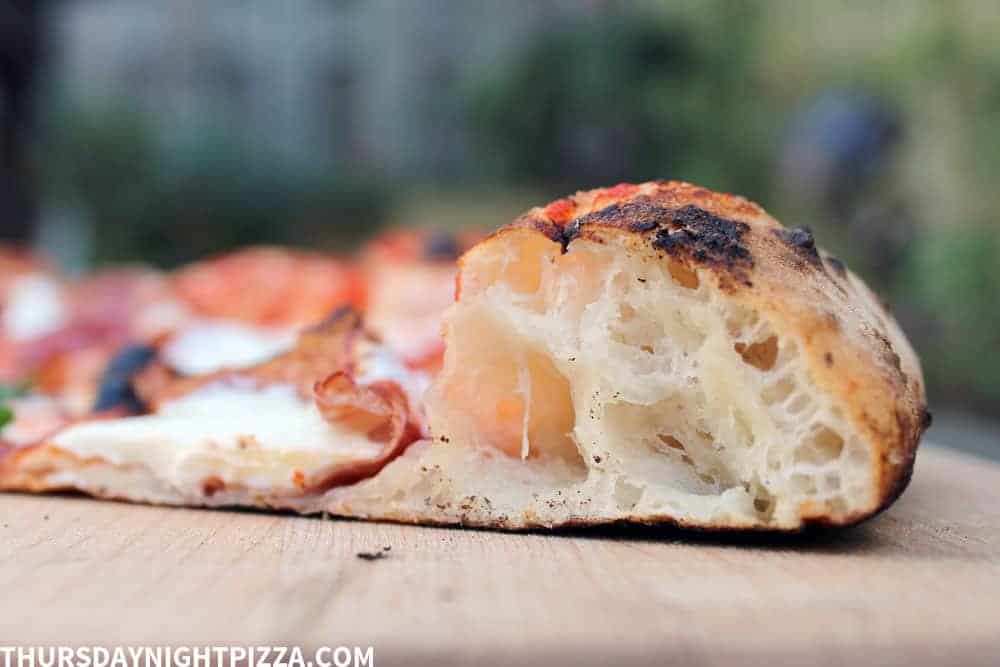
I fixed it (the dough takes several days to rise, just a heads up) topped with pepperoni and mushrooms, I dusted the bottom with cornmeal, which wasn't in the recipe but which I've seen done before. What I got was this:

It was odd-looking, but really good. It seemed most like a much better version of Fazoli's pizza (which, while not really good, is unique and under-rated.) It's not especially convenient to make, but I'll probably be trying it again soon.
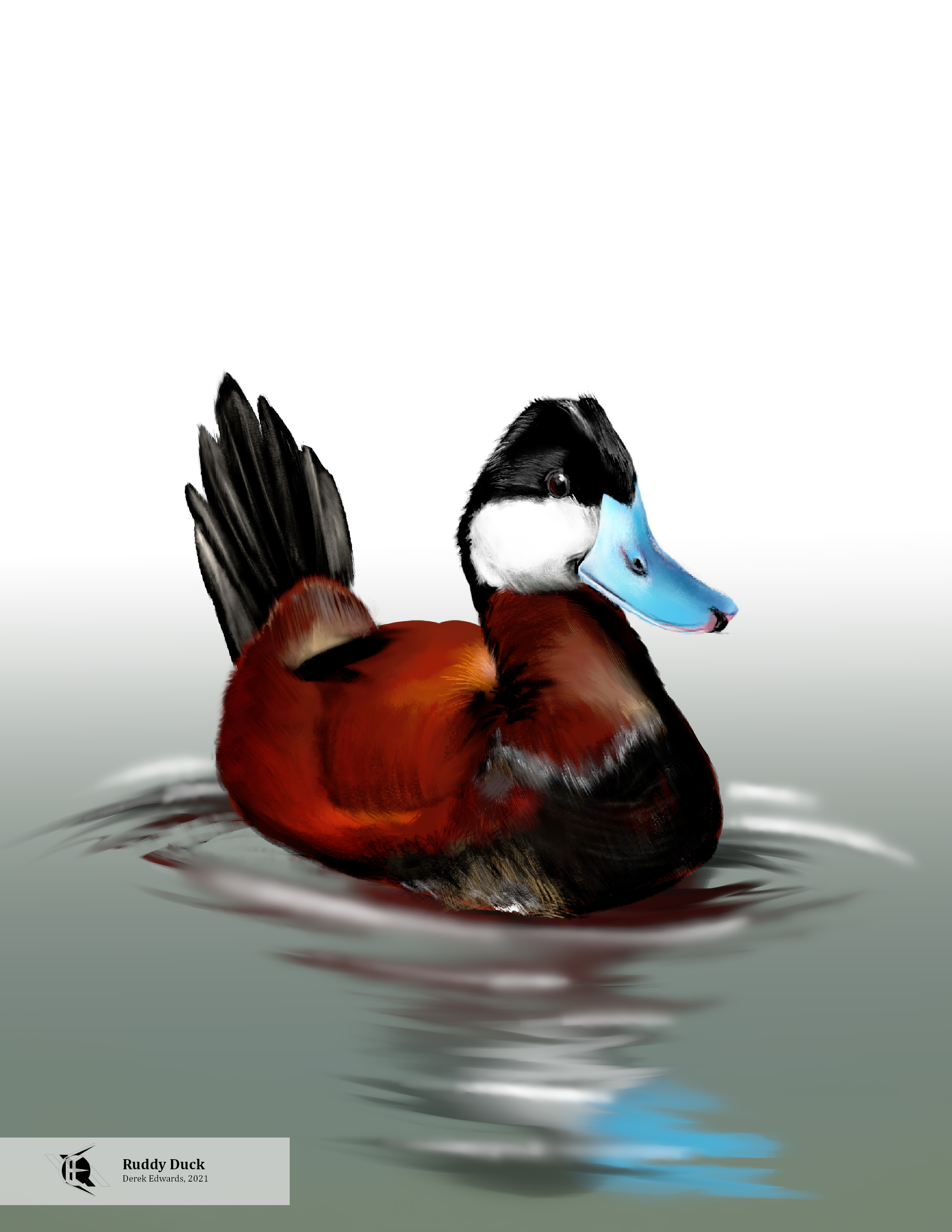
Bird of the Week
This week we have another waterfowl, specifically the only member of the stiff-tailed ducks found in North America. The ruddy duck is a small, squat duck, about a third the overall size of a mallard. While they can fly, they are not commonly seen doing so; like grebes, they prefer to flee danger underwater. They dive after their food, kicking their webbed feet out to the side in the manner also used by swimming frogs.
Like their cousins in Australia (the blue-billed duck), Eurasia (the white-headed duck), Africa (the Maccoa duck,) and South America (the Andean and lake ducks) ruddy ducks have long, stiff tails, which they often hold erect up out of the water, and breeding season males have auburn plumage and sky-blue bills. Over winter, the males turn grey, their bills black, though they can still be distinguished from females by their clownish white faces. With the long, high tails, ruddy ducks can be mistaken at a distance for pintails, though they can be distinguished from those by their different body shape, most especially by their peaked heads held up on comparatively short, stubby necks.
The term "ruddy" means "red", or more specifically "reddish". It comes, ultimately, from the same Indo-European root word as "red" as well as many other languages' word for "red", including the Latin "rufus", which gets applied to all manner of red and orange bird species, as well as to certain specific, often red-haired dogs and even people. The ruddy duck's binomial is Oxyura jamaicensis. The genus name, bestowed on the ruddy duck by C.L. Bonaparte and later given to the other ducks mentioned above, comes from the Greek for "sharp-tailed". (It shares a root with "oxygen", which forms "sharp" acids.) The species name means "Jamaican", though the ruddy duck's range extends through most of North America and the Caribbean.
A few populations in western Europe are considered invasive, as they out-compete the already endangered white-headed duck . A realm-wide cull in Great Britain greatly reduced their numbers there.
See the full archive of birds on Notion

Curation Links
The American Aristotle | Daniel Everett, Aeon
A profile of Charles Sanders Peirce, who Everett declares America's Greatest Thinker. Peirce was a scientist and philosopher who made great contributions to both fields, but who has been left in obscurity due to his initial failure to secure widespread publishing of his ideas.
How Science Conquered Diphtheria, the Plague Among Children | Perri Klaas, Smithsonian Magazine
"Diphtheria" comes from the Greek word for leather, the disease being so named due to the leathery pseudo-membrane that forms in the afflicted's throat. Through the 1700s and 1800s, it was particularly deadly in children, whose smaller throats were more easily blocked. Children's health writer Perri Klaas recounts how diphtheria necessitated to development of the first anti-bacterial drugs.
Buffalo Dreams | Maurice O'Brien, Aeon
[VIDEO] "Consumed by the idea of bringing American bison (commonly called ‘buffalo’) to his native Scotland, Scott Shand became the country’s first commercial bison farmer after buying a herd and relocating it to the small coastal village of Muchalls."
On Trouser Pockets | Sam Bleckley
Software engineer Sam Bleckley shifts gears to design something more physical: pants. Specifically, the pockets of pants, which either sacrifice looks for practicality (as in men's trousers) or practicality for looks (as in women's, notoriously). Bleckley takes the approach of pretending pants pockets were never invented, and designs in-built storage for the modern slacks-wearer.
Grace’s Family | James Patrick Kelly, Tor.com
[FICTION] "The mission: to survey the galaxy and beyond. An endless stream of probes and starships heading out into the universe, surveying, cataloging, assaying. Forever. And on board those ships, the intrepid explorers who give it all meaning."
See the full archive of curations on Notion


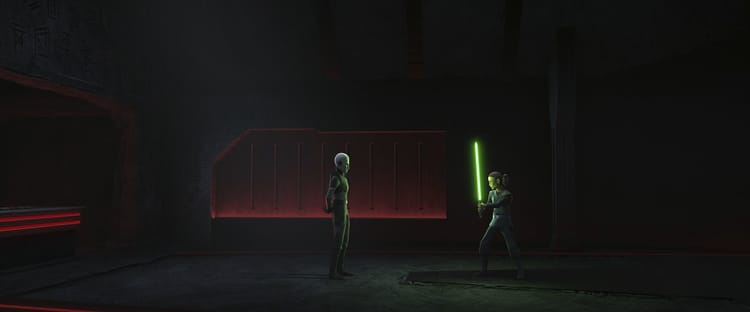
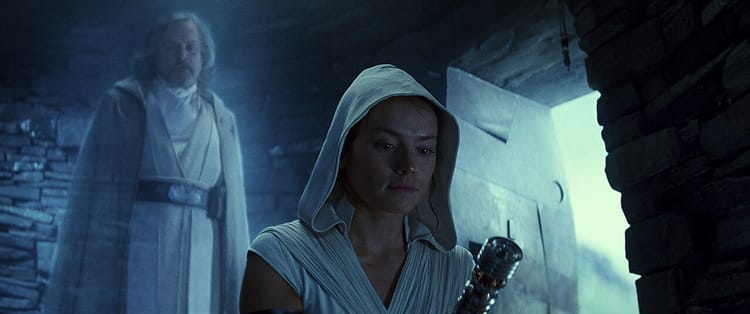

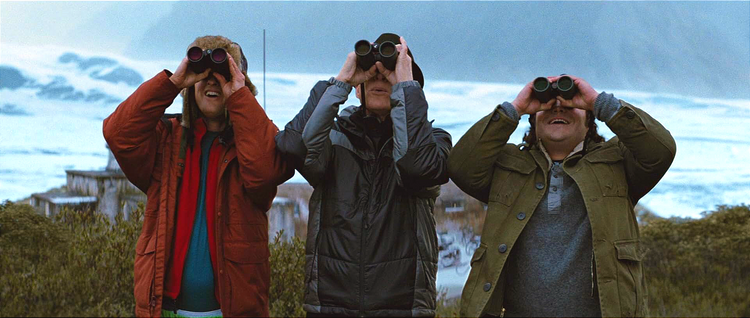
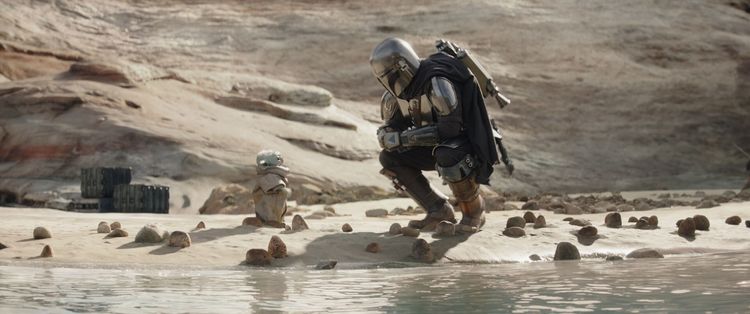
Member Commentary